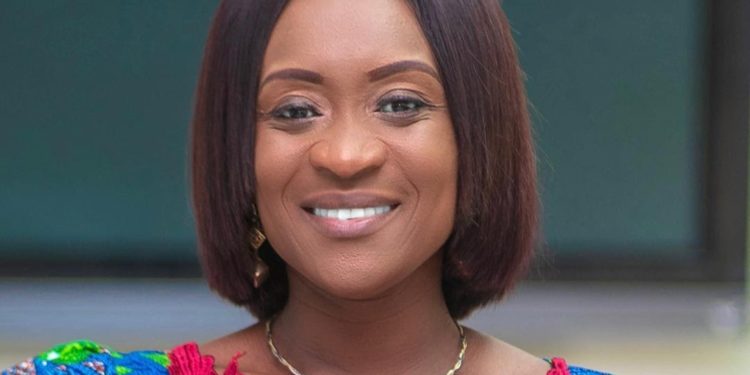Government optimistic about the economy stabilizing by end-2022
There have been concerns that the economy could deteriorate in the coming months as inflation has reached an all time high in recent times with the country’s debt stock ballooning, and the cedi also depreciating sharply against the dollar.
The development has ignited calls for the country to sign up for an IMF programme.
But a Deputy Minister for Finance, Abena Osei Asare, believes government’s ongoing programmes and reforms will soon help improve the economic fortunes of the country.
“We are embarking on good revenue measures that will help increase our revenues and reduce our dependence on borrowing. Also we are embarking on expenditure rationalization where we are cutting down expenditure and trying to improve the efficiency in the public financial management.
“So all these things will go a long way to help in reducing our deficit and then clearly we know we are on target and then we will get there. Of course you can assess us by the target that we have given to ourselves”, she said.
Meanwhile, Resident Representative of the International Monetary Fund (IMF), Dr Touna Mama, has described as worrying the continuous rising rate of Ghana’s headline inflation.
According to Dr Mama, the upward trend of the country’s inflation rate indicates a de-anchoring of inflation expectations by the Central Bank.
“Rising inflation rate is worrying and this shows that inflation expectations are not anchored, and surprisingly non-food inflation for the first time has surpassed food inflation because rent and others (sic),” he stated.
The views expressed by Dr Mama at the economic forum organized by the Economic Governance Platform (EGP) on the E-Levy and a possible return of the country to the IMF for a Fund programme, is affirmed by the Central Bank in its 104th MPC press release.
In its 104th press release, the Central Bank noted a steadfast implementation of the proposed fiscal consolidation measures in the 2022 budget are needed to re-anchor inflation expectations.
“Fiscal policy has responded to these concerns with an announcement of a further 20 percent cut in expenditures in 2022. This fiscal policy measure will help to provide for some correction, avoid the opening up of macroeconomic imbalances, and further deepen the fiscal consolidation agenda. This should also shift the consolidation process away from a revenue-led one, to one which encapsulates both revenue and expenditure measures signalling stronger commitment to keeping the deficit under check.
“A steadfast implementation of the proposed measures will be needed to safeguard stability, foster credibility and re-anchor inflation expectations,” it added.
Heading inflation for the month of January 2022 has been pegged at 13.9% by the Ghana Statistical Service (GSS).
The recorded headline inflation rate for January 2022 compared to the previous month’s -December 2021 – inflation rate of 12.6% marks an increment of 1.3 percentage points.
On a month-to-month basis, inflation between December 2021 and January 2022 was 2.1%.
According to the GSS, the rising cost of Housing, Water, Electricity, Gas and other Fuels (28.7%) as well as Transport (17.4%) pushed the rate of inflation for January 2022 to 13.9%.
Food inflation for the month of January 2022, the GSS noted was 13.7%, higher than both December 2021’s food inflation of 12.8%.
Non-food inflation on the other hand went up again in January 2022 to 14.1%, compared with the 12.5% recorded in December 2021.
Touching on the topic of the country going for an IMF programme, Dr Mama averred the country’s macroeconomic conditions are getting more complicated given the country’s high debt stock and fiscal deficit.
He stated that a programme from the IMF for the country at this point in time, will be extremely helpful for Ghana, however, that is something the government does not want at the moment.
He therefore advised government to focus on the needed reforms, policy packages and expenditure rationalization to resolve its fiscal and debt challenges.








